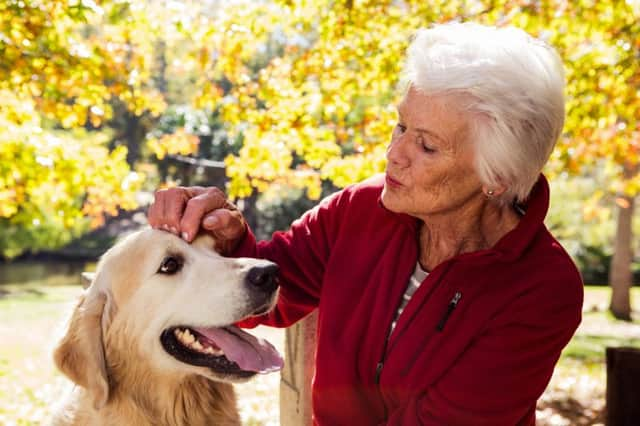Sarah Jeffrey: Dogged belief in the real benefits of canine comfort


Severe memory impairment is understandably traumatic, with some family members expressing that they have ‘lost’ their loved one despite them remaining physically present. But are these people really lost, or is there more going on than we can currently comprehend?
Given the prevalence of dementia and despite advances in modern medicine, there are aspects of dementia that are still poorly understood. How can someone be unable to remember a conversation held five minutes ago, and yet flawlessly join in the singing of a childhood song?
Advertisement
Hide AdAdvertisement
Hide AdIt is believed that music helps ‘unlock’ memories due to the frequency with which these songs have been recollected. The neurological pathways to these particular memories have firm foundations, whereas a recent conversation leaves but a trace within the brain.
Through my work for canine therapy charity PEACE, I have frequently observed that contact with dogs has a similar effect to music. For former pet owners, the familiarity of stroking a dog visibly reduces anxiety, can result in coherent conversations with people who normally cannot remember their spouse’s name, and brings smiles to some thought to be ‘locked in’ and unresponsive.
It is understood that having a heated discussion with someone with advanced dementia can have negative effects that significantly outlast the moment itself. The conversation may be forgotten, but the feelings of anxiety and frustration that it provoked can remain.
Thankfully, the opposite has also shown to be true. A positive visit or enjoyable entertainment provide not only temporary amusement, but can also leave the person in good spirits for quite some time afterwards.
I recall an occasion when an elderly lady with dementia swooped down as if to pick up my therapy dog. Concerned that she might fall, I took the dog in my arms to allow the lady to pet her at a safer height. The lady took up the lead, and led us around the lounge of the dementia wing, announcing to the amused onlookers that she was ‘walking the dog.’ Encouraged by the smiles and laughter of the other residents, the lady took us in her arms and we began waltzing around the room – two laughing ladies and our furry friend.
The event may not be remembered by many, but the joyful atmosphere it created and maintained was noted by carers.
It is essential that researchers continue to strive for treatments that delay the onset of dementia, and, hopefully, succeed in developing a cure. However, it is also important that we continue to explore ways of reaching and improving the wellbeing of those currently affected by dementia.
A former vet, Sarah Jeffrey is now the CEO of Pet and Companion, a charity providing canine therapy along with pastoral care to people in need of support and companionship. www.petandcompanion.com